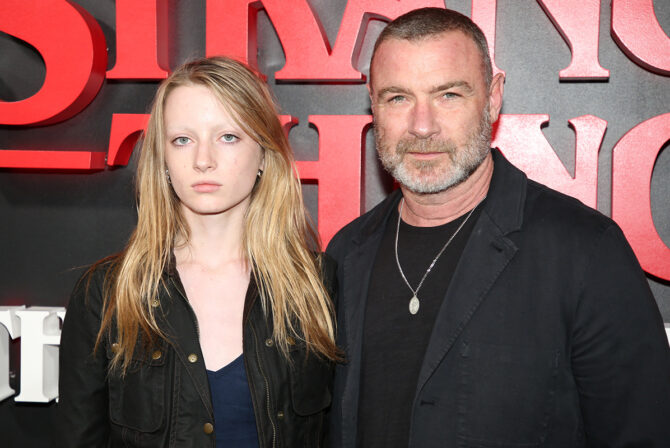“My daughter, the Hebrew School dropout.” Those weren’t exactly the words I had in mind when I enrolled Hannah in Hebrew school when she was in kindergarten. And all went well for a few years…until there were some rumblings in 5th grade. But I gamely ignored them, and we soldiered on.
And then middle school hit like a tsunami. Hannah was normally a fairly calm, methodical kid. Not anymore. Her anxiety levels spiked as her secular school workload increased. She placed high expectations on herself, expecting straight A’s every marking period. I remember begging her, “Get a B. Just get a B in something and you will see that the world won’t end.”
Add in a long drive to Hebrew school and an extra two hours of class once a week, and Hannah was on the verge of cracking. When she came home from Hebrew school she would sob in my arms. She didn’t connect socially with her peers and she wasn’t learning anything new. She would stay up late at night to finish her homework and then do cartwheels and handsprings in her bedroom to calm her nerves. It was wearing both of us out.
Midway through 6th grade, I had several private conversations with Hannah’s Hebrew school teachers, and they confirmed what she was saying. She was socially disconnected and was far enough ahead of her classmates that she wasn’t learning anything new.
At the same time, she joined a recreational swim league through our city with several friends from a different congregation. Unfortunately, swim practice conflicted with Hebrew school. I made an executive decision then, to let Hannah miss Hebrew school so she could swim.
After swim practice, Hannah was relaxed, calm, focused, and happy. My Hannah had returned to me, smiling. And there lay my choice: force her to go to Hebrew school and risk her abandoning Judaism, or take her out of Hebrew school to pursue swimming with the understanding that Judaism allows for detours and being Jewish is a life experience, not a sprint to the bat mitzvah.
So I made a deal with Hannah. She could swim as much as she wanted, with the understanding that attendance at Shabbat morning services with me would be mandatory. She couldn’t “check out” of Judaism completely, but she could take this detour. I wish I could say she was a pleasure on those Saturday mornings, but she wasn’t. Sullen and rude, she would glare at me during services. I wasn’t feeling the “shalom” in “Shabbat Shalom” but I also wasn’t backing down.
Hannah continued with swimming during the week and Shabbat morning services in 7th grade. Fortunately, she was paired with an amazing bat mitzvah tutor; they adored each other and each week, as Hannah was learning her haftarah and Torah trope, she was gaining a pathway to connect with Judaism through music. She led the Torah service, musaf service, and chanted her Torah and haftarah portions at her bat mitzvah.
The summer after Hannah’s bat mitzvah, she went to Six Points Sports Academy for the first time—a place where she could both swim AND be in a Jewish environment. And she was deliriously happy, because she was living the best of both worlds.
The next year, Hannah and I took a “Shabbat from Shabbat,” and went to swim meets or slept in on Saturday mornings. Again, another detour. But we still had regular Shabbat dinners with friends and family, and observed the holidays.
When Hannah began high school, we noted that our synagogue had a very innovative Hebrew high school program and that one of Hannah’s favorite teachers was teaching there. Hannah tentatively signed up, not sure how she would be received after “dropping out” of Hebrew school for nearly three years.
She was the recipient of a lot of good-natured ribbing on the first day. “Oh, look who showed up—finally,” and, “Hey Hannah, where have you been?” The peers she couldn’t connect with in 6th grade were generously welcoming her back.
I find it interesting when adults talk about their “Jewish Journey.” Whether it’s increased observance, joining a
havurah
, or enrolling in an adult education class, most adults tacitly agree that Jewish learning does not follow a linear path. Jewish learning and Jewish practice require that we take the long view. We wandered in the desert for 40 years after we left Egypt; it took 2000 years for us to reclaim Israel as our homeland. This is clearly a religion that understands and honors detours and setbacks.
Today, Hannah’s in 10th grade, enrolled in Hebrew high school, and enthusiastically participating in youth group events with two of her closest friends. She loves chanting Torah, and loves being with her Jewish friends, aka “The Jew Crew.” We often don’t allow our children the latitude to take a detour on their Jewish journeys. Too often, they are enrolled in Hebrew school starting in kindergarten or 1st grade, and it becomes an exhausting race to the bar or bat mitzvah. And then, afterwards, they disengage completely from Judaism. But that’s not really the result we are looking for, is it?
Taking Hannah off the straight and narrow path and allowing for some detours in her Jewish journey has cemented her relationship with Judaism because now, she owns it. She’s responsible for her Jewish identity and Jewish practices. And that’s alright with me.
Like this post? Get the best of Kveller delivered straight to your inbox.







